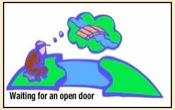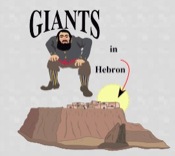
King Saul’s Disobedience & Demise
1 Samuel 15
The Bible Teaching Commentary
_________________________
B) The Response:
Tolerating a Little Sin
1 Samuel 15:4-9
Paul J. Bucknell
Introductory | The Crisis (1 Samuel 15:1-3) | The Response (1 Samuel 15:4-9)
The Test (1 Samuel 15:10-15) | The Excuse (1 Samuel 15:16-23)
The Confession (1 Samuel 15:24-31) | The Future (1 Samuel 15:32-35)
Bible Study Questions | mp3 Podcast
_________________________
Purpose
1 Samuel 15:4-9 The Response: Tolerating a Little Sin is part 3/7 of The Bible Teacher's Commentary on 1 Samuel 15 which shows the great things Saul accomplished in that battle with the Amalekites in 15:4-8 and the compromises he made at the same time in 15:9.
Verses 4-8 record at least three major ways King Saul obeyed the Lord. King Saul first mobilized a large army seemingly without any difficulty. He went to war against the Amalekites. Why did the author distinguish between foot soldiers and the men of Judah? Maybe the first group were soldiers while the others were nearby men supporting the official army.“Then Saul summoned the people and numbered them in OT, 200,000 foot soldiers and 10,000 men of Judah. And Saul came to the city of Amalek, and set an ambush in the valley. And Saul said to the Kenites, “Go, depart, go down from among the Amalekites, lest I destroy you with them; for you showed kindness to all the sons of Israel when they came up from Egypt” (So the Kenites departed from among the Amalekites. So Saul defeated the Amalekites, from Havilah as you go to Shur, which is east of Egypt. And he captured Agag the king of the Amalekites alive, and utterly destroyed all the people with the edge of the sword. 9 But Saul and the people spared Agag and the best of the sheep, the oxen, the fatlings, the lambs, and all that was good, and were not willing to destroy them utterly; but everything despised and worthless, that they utterly destroyed” (1 Samuel 15:4-9).
Check out our Digital Old Testament Library for a huge collection of resources on 1 Samuel and all of the Old Testament!
Second, in verse 6 in the midst of the attack we see a kind and sensitive part of Saul. He could have just wiped out everyone in enemy territory, but He remembered God’s priorities. When Saul stopped the battle and let the Kenites escape, he gave up the advantage of the attacker: surprise and speed. The Kenites early had shown kindness to Israel when they had come out of Egypt. Kenite was actually Moses’ father-in-law. The Kenites treated Israel well in contrast to the way the Amalekites treated them. Many of the Kenites actually went to live with the Israelites but some were in the Amalekite territory just south of Judah.
“And the descendants of the Kenite, Moses’ father-in-law, went up from the city of palms with the sons of Judah, to the wilderness of Judah which is in the south of Arad; and they went and lived with the people” (Judges 1:16).
Third, the Israelites thoroughly eliminating the Amalekites, reaching far to the border of Egypt in the Wilderness of Shur (a wall looking like mountains). Saul destroyed the people. In order to go to the edge of Egypt, he had to travel over rough terrain and for a good long distance. He obeyed and fought well. This establishment of the kingdom was part of a lifetime of work seen in 1 Samuel 14:47-48.
Verse 9, however, strikes a negative note about the battle. Saul compromised. He did not completely kill everyone (such as King Agag) and kept the best animals when everything should have been destroyed. In order to highlight the inconsistency, the end of verse 9 says, “Everything despised and worthless, ... they utterly destroyed.”
Someone is watching what we do. The author noted this inconsistency. God observed it. In a general way, Saul made some significant steps of obedience. He bravely fought the enemy as he was supposed to. But there were other smaller matters in which he did not carefully observer. This included sparing one Amalekite (the king) and he did not kill off all the livestock.
Continue (4/7) -> The Test: Observes what one really believes (1 Samuel 15:10-15)








